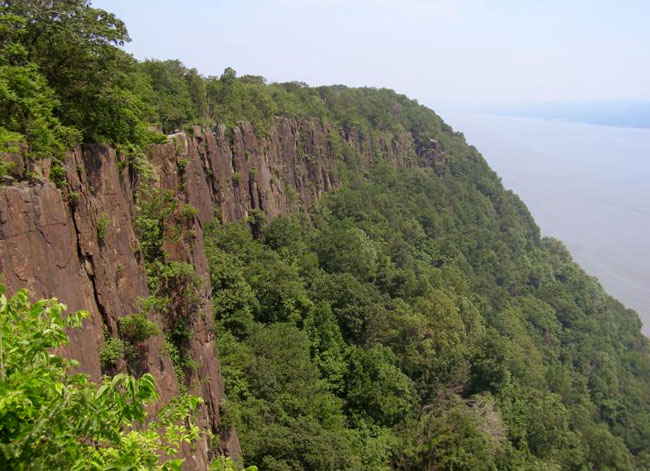 [Image: “Caves for New York” (1942) by Hugh Ferriss].
[Image: “Caves for New York” (1942) by Hugh Ferriss].
After writing the previous post—about Hong Kong’s impending infrastructural self-burial in the form of artificial caves beneath the island city—I remembered an image by Hugh Ferriss, preeminent architectural illustrator of the early 20th century, exploring huge air-raid shelters for New York City carved out of the rock cliffs of New Jersey.
“These shelters were to be 30 meters high and 60 meters wide and cut into the cliffs of the Hudson Palisades along the New Jersey side, and were to house planes, factories and hundreds of thousands of people,” Jean-Louis Cohen recounts in the recent book Architecture in Uniform: Designing and Building for the Second World War.
 [Image: The New Jersey Palisades, via Wikipedia].
[Image: The New Jersey Palisades, via Wikipedia].
While this, of course, never happened, it’s a heady thing to contemplate: an alternative New York City burrowed deep into the geologic mass of New Jersey, a delirium of excavation heading west, away from these islands at risk from wartime annihilation, in a volumetric Manhattanization of empty bedrock.
